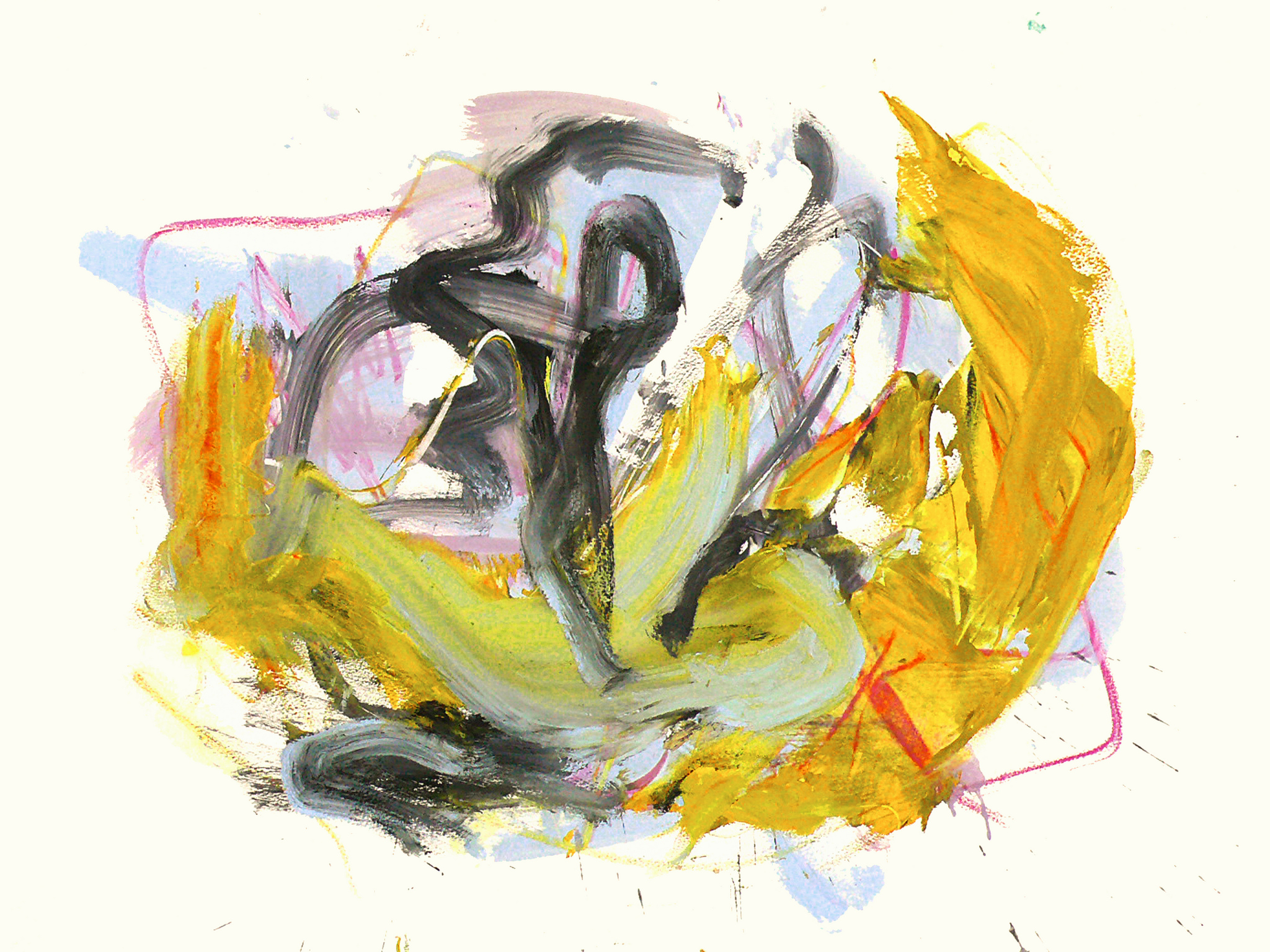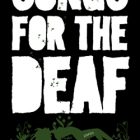Interview with Cate Marvin Part I

If you have, at any point this year, had a conversation about the number of women in publishing–the number of female-authored books reviewed in newspapers, say–you’ve had that conversation (likely) because of some numbers which were researched and published by VIDA, an organization devoted to women in literary arts. The author of two shockingly, lastingly great books of poetry (2001’s World’s Tallest Disaster and 2007’s Fragment of the Head of the Queen), and co-editor of Legitimate Dangers, Cate Marvin has been a significant touchstone for lots of us who’ve found our way into poetry in the last decade, and her work with VIDA–“to explore critical and cultural perceptions of writing by women through meaningful conversation and the exchange of ideas among existing and emerging literary communities,” from the website–promises to hopefully/finally establish the Big Conversation we’ve all got to have about writing and gender. There’s plenty more to say about Marvin–how her poems are jagged impossibilities which stick ferociously in gray matter (I dare anyone to read “I Live Where the Leaves Are Pointed” or “Scenes From the Battle Of Us” and not carry at least a few of those lines for days or months afterward), how she blasts open doors on lyricism you may not have even realized were there and/or closed–but instead of just waxing on an on, here’s the first part of a long, engaged and engaging interview which was conducted over email in the early parts of 2011.
Cutter: Can you talk at all about other art forms that find their way into your creative working headspace? Music or films or movies or anything? There’s a sense—or, at least, I get a sense—in your work of other creative things offering structural contraptions to help—Fragment of the Head of a Queen coming from a line of someone’s writing if I’m not (yes?) mistaken—so go wide in response to this, if you’d like/please—generative art for you, structurally or content-wise or whatever.
Marvin: As a writer, I like to drag in little pieces of language, images, and incidences from the outside world—whether they would be understood as “art” or not, I’m not sure— much in the way a bird might scavenge bits of grass, string and tooth floss to build its nest. I also enjoy creating poems that speak back to the literary tradition in ways that are not so obvious. For example, my poem “He Wishes His Beloved Were Dead” riffs off of a Yeats poem; similarly, “Mug Shot” makes fun of Rilke’s “Self Portrait, 1906” by presenting a less than noble image of the poet in her youth by focusing in on the image of a DUI mug shot.
The title poem of my second book, Fragment of the Head of a Queen, is lifted from an exhibit of the remnant of an Egyptian head on display at the Metropolitan Museum. But that’s about all it does. It works off of the appearance of the sculpture itself, but it’s ultimately much more of a meditation on the metaphorical implications of the fate of the head itself, and how it relates to a “fallen” woman, than it does the history of the original piece.
The title of my poem “Teens Love Horse Dick” was originally the subject heading of a spam email I received. I found the language interesting in how very shocking it was despite the fact the phrase itself was a string of fairly innocuous words. This led me to thinking about the role of pornography in women’s lives: I was also interested in how such a phrase could lodge itself into a random in-box, how the receiver of such a missive might actually be wounded by it in some manner. I was, of course, thinking about how images and narratives of sexuality are presented with such regularity in the media that they are considered the norm, and even, to an extent, banal. The poem itself speaks to how such intersections can be dangerous to one’s psyche.
As for movies, I don’t tend to pull the cinema into my poems with any great success. This may be because I am fairly pedestrian watcher of films, in that I usually turn to movies when I’m exhausted and want to be distracted from my life at hand. But I can say that the title of “Practically An Orphan” is lifted directly from a dreadful film I can’t now recall the name of: the scene, as I recall it, involved a married heterosexual couple lying in bed reading, bookended by their respective nightstand lamps—the wife turns from her book to argue with her husband that a particularly downtrodden young person they’ve recently had trouble with is “practically an orphan.” She pities the youth. At the time I watched this scene, I was prepared to channel this phrase into a poem because: 1.) it doesn’t mean anything, really, and is therefore kind of ridiculous; 2.) it seemed a great title for a poem I was already thinking about writing concerning strategies for patricide . . . and I knew that the speaker of this poem I was wanting to write did fact feel like an actual orphan, and not “practically an orphan.” The poem itself, set into motion by this innocuous comment, re-awoke my own relationship to the work of the Lithuanian poet O. V. de L. Milosz. His poems often impart a sense of himself as a solitary, only child, roaming the estates of his parent’s home, propelled by a monstrous sense of loneliness and despair.
So I wrote a poem in the voice of a speaker who is preoccupied with the practical matter of killing her parents, and this was a speaker who considered herself orphaned long before deciding to commit such an act. “Practically An Orphan” is a pretty disturbing poem, and it’s served as a litmus test of sorts for whether my own parents read (and understand) my work—for they have never acknowledged (or confessed) to their awareness of the existence of this poem in my second book (though they would claim to have read the book entire!).
I feel I should say more, because I often have a sense of horror with regard to this poem. And I feel rather strange that I happen to be the author of it. I myself am an only child, and I have always thought of the speaker of my poems (who I do not consider to be myself) as a sort of orphan. The poem confronts, in an admittedly cold-blooded way, the rage one can feel toward one’s parents. At the time I wrote “Practically an Orphan,” my own parents were upset with me because I was determined to spend money I didn’t have on a plane ticket to attend an old friend’s memorial service in a distant state. Only children tend to regard their closest friends as siblings. My parent’s opposition to my desire to attend this service, in the wake of what was, for me, perhaps the most devastating event of that particular decade, moved me to attempt to understand the mindset of children who wish to murder their parents. The poem ends with the decision to forgive oneself for everything (“every wrong thing we’ve ever done”) because this act is crucial to killing off one’s own childhood and, thus, the manner in which childhood stymies one’s attempt to grow, to become adult—to, essentially, be fully liberated in one’s thought, love, and action.
Cutter: The idea that the speaker of your poems is not “yourself” just fascinates me. I don’t know how deeply you’re interested in getting into that, or even if the question naturally leads to any question/answer combo that’s useful (I assume you’re saying that the speaker’s not “you”, C Marvin, with bills to pay and a child and responsibilities and jobs, but there’s so much about contemporary poetry that seems self-based, identity-based; I’m curious how you wrestle this stuff to the ground, if you mean that the you in the poems features aspects of yourself torqued, heightened–if the you of the poems are fragments of a larger self, if that makes sense). I don’t know. I’d love to know what you think about it.
Marvin: To be plain: I believe a poem is successful when it has fully detached from its author. This is what Eliot meant by the eradication of personality. It’s probably also what Keats meant, to some degree, by “negative capability.” But, really, I should just tell you what it means to me: by knowing I need not be “myself” in a poem, I feel allowed, quite simply, the liberty to write whatever the hell I want to write, and to be whoever I want to be in the life of the poem.
Poems live on. Way beyond the writer’s lived life. I’ve read that fiction writers can identify a part of themselves in every character they create—and I suspect this to be true of poems as well. I can tell you what brought me to write a poem, why I cared about the topic, etc., but if one is trying to create literature, one cannot equate one’s lived life with the work. For a very simple and straightforward reason: literature does not imitate life, it recreates life, and it does so through artifice and rhetoric. I’ve said this before. And if you hung out with me for a day, you’d find I have nowhere near the focus or dramatic charge as the speaker of my poems. I like cooking, needlepoint, shopping. My speaker couldn’t give a shit, I’m sure, about tracking down discount designer clothes at Century 21. My speaker isn’t balancing my checkbook. As a character, she’d be more likely to stash her money beneath a mattress (something that has lately struck me as a good idea).
I’ve been thinking about the world of my poems lately because of a question recently posed to me concerning “community” in my poems. The individual who asked made an assumption that my poems work within a living community of poets—but I have a strong sense of the landscape / mindscape of my poems as very interior and not so connected to the present world I/we live in. In a lot of ways, the world of my poems is a construct, not unlike a fairy tale. There’s a system, a set of symbols, a mythology.
I also require the freedom to know that I am composing a fiction. It would be dead boring to have to be accurate with regard to facts, and it’s much more my desire to remain true to a feeling and/or idea. (I don’t consider the two mutually exclusive.) I find myself most hopeful about my work when I read back over it and simply cannot understand where it came from. I want to be able to love more madly and rashly, to hate wildly and threateningly, to conduct my writer self on the page as a monster might move through the village it’s terrorizing, than to be “me.”
A close writer friend recently told me that he felt my second book, Fragment of the Head of a Queen, was more “personal” than the first. It’s not, believe me. It’s way more sinister, and it tells a ton of lies. But I was happy that my friend actually thought the book was “personal”—because in many ways the book works that angle like a mother-fucker. It takes the “confessional” to what I hope is a new extreme. How much can I lie, and how convincingly? At the same time, I’d say the book is entirely true. Because it is. But did my friend not notice that speaker is entirely unhinged? And, more significantly, that I am not? I mean, come on!
There’s a poem in the book (“Catatonia”) in which the speaker’s head floats off her neck and gets caught in a tree. She considers calling the fire department to ladder it down. That’s what I mean when I say that, literally, the speaker of the poem is a construct of my imagination. In real life, my head has always managed to stay firmly attached to my body. I’ll admit I’m worried about my blood pressure and other matters that begin to concern a person in her early forties. But I can promise you that I won’t be writing poems about my cholesterol.
Cutter: As someone who’s got the same job, I’d love to hear your thoughts on the generative and detrimental aspects of teaching, specifically with regard to writing. I know the easy answer is that, with teaching, there’s less time during the year to write (maybe), but I’d be curious to hear about how your relationship with your own writing shifts because of/with/through your students and your job.
Marvin: The skills that are required of writing and the teaching of writing do not necessarily go hand in hand. I’m a writer first. And before I became a teaching assistant in graduate school (a prospect I most certainly regarded with dread) I had never before considered teaching as a possible vocation. Thus, I did not believe I could be naturally gifted as a teacher in any way. For me, teaching was, from the beginning, hard work. It took me out of my comfort zone, and I would eventually discover this was very good for me.
Some writers complain that teaching takes away from their writing time. I consider it a gift. This may be partly due to the fact that during the year or two before I entered graduate school, I worked a 9 – 5 office job as a secretary. I was twenty-four when I started teaching, and I haven’t stopped since, so it’s long been a part of my writing life. This will no doubt sound cheesy, but I continue to learn a great deal from my students: teaching teaches me. I’ve learned, most importantly, that when I indulge my tendency to judge others, I am, more often than not, off the mark. I am constantly forced to reexamine the very stereotypes I’m inclined to uphold— every semester I find myself reassessing my own assumptions regarding others, and I’m continually surprised by the sheer goodness I see in people. Because there’s something really humbling in getting to see the act of writing up close, to witness another’s struggle to get the words right, and to assist a student in articulating his or her vision of the world.
Writing, creative or otherwise, is such an intimate act, especially when one is learning how to put his or her thoughts forward into a more public arena. I feel exponentially blessed that I often teach English majors, especially at a school where the students are commuters and working-class. I could say my students keep it real. But this is a cliché. Truthfully, my students are some of the most engaged minds and personalities I’ve ever connected with. Teaching is, therefore, inherently political for me: it keeps my nose to the ground and aware of what’s going on in the world; it puts me in touch with individuals far younger than myself, and in this way I feel my students keep me young.
My students also remind me of how very hard it is to improve as a writer; I am consistently astonished by the strength of the work they produce. So, for me, teaching is an ideal job. Would I write more if I didn’t teach? Certainly. But I doubt I would I would be the writer I am without having shared the perspectives of my students.
Cutter: If you were writing in another genre, who would you like to write like and why? I’m massively interested in this sort of cross-over stuff: all writers read all other writers, and asking only about poets seems dumb. Who do you dig in fiction or non? Especially I’m curious with you on this one, since you’ve got the fiction MFA as arrow in quiver. Does fiction call/pull? Has it more or less at times and scenarios?
Marvin: I often wonder if people understand how difficult it is to write good fiction. It’s certainly one of the hardest things I ever tried my hand at, and I envy the folks to whom the craft comes naturally.
But there’s no doubt in my mind that studying and writing fiction made me a much better poet. And, yes, I sometimes entertain that easy fantasy of crafting a memoir, a book of short stories . . . surely, I have enough material to do so. But do I have the craft? Every time I start a memoir (and this happens every other Tuesday), I read back over what I wrote and find myself appalled by the seriousness with which I’ve taken myself.
As a reader, I don’t find my prose very interesting. And there’s the fact that by the time I’ve written the third paragraph of a story or personal essay, I’m so distracted by all of the narrative threads I’ve created I’m ready to crawl into bed with a nightcap. Oh, believe me, I can write a great opening scene! It’s following up on it that’s the problem. Real prose writers move on, desert that first scene, get into the body of the work; they can foresee how the many repercussions inherent in the opening scene must be returned to in further exposition. I can’t claim to have that foresight, and I certainly don’t have the endurance.
I became a much stronger fiction writer while studying at Iowa, yet I realized early on that I would never be as good as the best of my peers. I ended up, as luck would have, in a most illustrious class of prose writers: my fellow alums’ publications and accolades continue to proliferate like a guppy’s spawn. And watching these ridiculously talented and determined folks work, up close, for two long years (1997 – 1999), reminded me of how passionately I felt about writing poetry. (It’s true that I was in fact writing poetry the entire time I was at Iowa, at the expense of my development as a fiction writer.)
On leaving Iowa, I decided, without much difficulty, that I could make a far more serous contribution to literature by writing poetry.
This is Weston’s tenth post for Get Behind the Plough. Part II of this interview will be posted next Wednesday.
Image from: http://catemarvin.com/bio.htm



